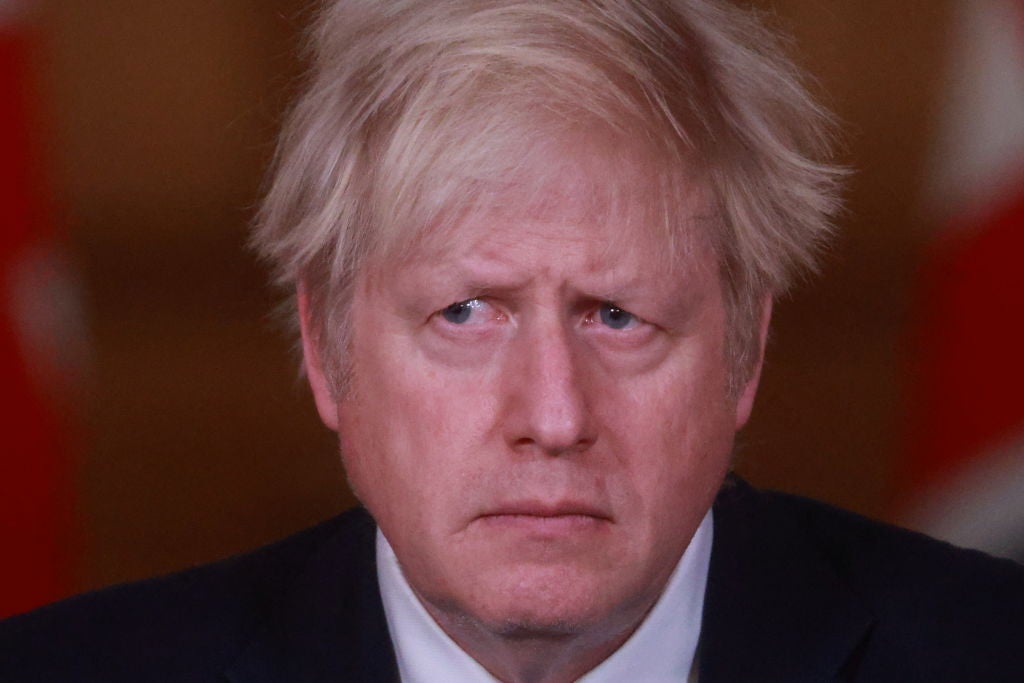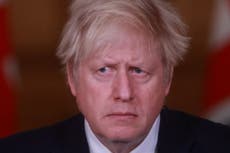A year ago today, the government was privately panicking about Covid-19. Pity they weren’t doing so in public
We kept calm and carried on. How were we to know any different?


Your support helps us to tell the story
From reproductive rights to climate change to Big Tech, The Independent is on the ground when the story is developing. Whether it's investigating the financials of Elon Musk's pro-Trump PAC or producing our latest documentary, 'The A Word', which shines a light on the American women fighting for reproductive rights, we know how important it is to parse out the facts from the messaging.
At such a critical moment in US history, we need reporters on the ground. Your donation allows us to keep sending journalists to speak to both sides of the story.
The Independent is trusted by Americans across the entire political spectrum. And unlike many other quality news outlets, we choose not to lock Americans out of our reporting and analysis with paywalls. We believe quality journalism should be available to everyone, paid for by those who can afford it.
Your support makes all the difference.It is a year and a day since, apparently, panic ripped through Whitehall. The UK’s first confirmed case of Covid-19 occurred on 31 January 2020.
If there was panic in 10 Downing Street, mercifully it did not interrupt the installation of a light projection screen to count down the final hours of the country’s membership of the European Union.
According to reports in Politico, the Covid news struck the heart of government like something of an earthquake. Which, for those of us who spend our time observing its exterior as opposed to interior workings, comes as something of a surprise.
Jamie Njoku-Goodwin, who was then special adviser to health secretary Matt Hancock, has said that he received a phone call at 12.41am. He missed the call and sent a WhatsApp to the person who had sent it. He then did his job, and told his boss the news, in the middle of the night, who would then do his job and tell his boss – the prime minister – the same news.
Mr Njoku-Goodwin marked the anniversary by telling Politico: “I remember leaving home and walking through London Bridge station with all these people walking around me and just thinking: “None of them know what’s about to hit them.”
Whether he personally knew the scale of quite what was about to hit seems unlikely. But it’s clear that someone two phone calls away from Boris Johnson was at least aware that it was, you know, a big deal.
It also makes for somewhat bizarre reading given that, for the most part, those people in London Bridge station were hit by precisely nothing for almost a full month.
It was at this point that other countries around the world – like South Korea, Thailand, Taiwan and so on – had already entirely understood what was about to hit them. Namely, a highly contagious and fairly lethal respiratory infection, not unlike SARS and MERS, which had already hit them in recent years. They had already put into place thorough plans to limit their spread. These were the absolutely crucial moments.
And yet, two days after this middle-of-the-night phone call, 48 hours since a special adviser at the Department of Health was apparently gazing in trepidation upon members of the public, who had no idea what was coming, the prime minister would be giving a speech in Greenwich, at which the following words were uttered:
“We are starting to hear some bizarre autarkic rhetoric, when barriers are going up, and when there is a risk that new diseases such as ‘coronavirus’ will trigger a panic and a desire for market segregation that go beyond what is medically rational, to the point of doing real and unnecessary economic damage.”
The video footage is even more damning than the words. The pause and the stress on the word coronavirus, pronounced “co-rownervaaairus", some daft thing from some silly foreign place. It was the first time Boris Johnson ever said the word in public, and when he did so he played it for laughs. No one’s laughing now.
For more than a month, no one knew what hit them. They carried on going to and from work. Packed planes from France and Spain and Italy came and went every single day, bringing in their vast viral payload. By the end of February, a month on from all this apparent panic, epidemiologists estimate the R rate in London had risen to over three.
Two weeks after this apparently seismic moment of concern, Boris Johnson went off to Chequers for a week, instructing his staff not to contact him unless absolutely necessary. The coronavirus crisis was less important than his own personal one – a divorce, an engagement and an imminent baby all needed announcing.
A further two weeks passed, a month now since this late-night moment of panic, and the prime minister would be on live television, bragging about shaking hands with coronavirus patients in hospital, as his chief scientific advisor stood next to him and shuddered.
And so the people in London Bridge station, and everywhere else, just carried on coming and going. Not so long later, other failed candidates in the Tory leadership contest won by Boris Johnson were making it very clear that lockdown needed to happen immediately, and should have happened sooner. This was when the death toll was four. Thousands of Atletico Madrid fans arrived in Liverpool to watch their team play football, even though they had already been banned from watching them in their own country.
All this, of course, is well known. That things could have been very different are no surprise to anyone. Of course, the government can be forgiven for not being quite so well prepared for what hit them as the very best-in-class Asian countries, with direct recent experience of the same, and in some cases, different cultural norms that appear to have been better suited to the mass national participation exercise of virus containment.
But it is nevertheless somewhat striking, stunning even, to learn, a year on, of this late night private panic that the rest of us didn’t notice for more than a month.
We kept calm and carried on. How were we to know any different? If we’d have been privy to all this fear and dread and foreboding, well, there might have been a lot less grief come along to replace it.



Join our commenting forum
Join thought-provoking conversations, follow other Independent readers and see their replies
Comments